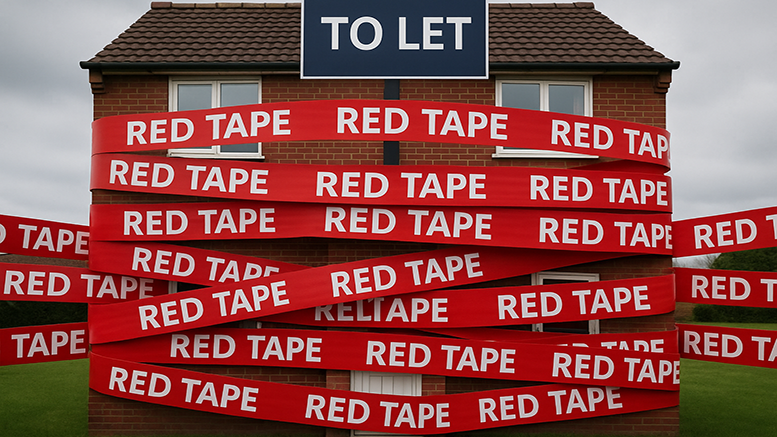Landlords are being driven out of the private rented sector by relentless rules and taxes, leaving fewer homes and higher rents despite a modest easing in price growth, a new industry report warns. Propertymark says “endless red tape” and lost tax reliefs are fueling an affordability gap for tenants and eroding returns for investors.
Regulation blamed for undersupply of homes
ARLA Propertymark president Megan Eighteen told landlords the market “has reached its peak on affordability” yet remains unaffordable for many renters. She noted that while interest rates have inched down and some rents have softened, the shortage of available homes “of all types and tenures” is acute.
“Professional, law-abiding landlords should be encouraged to help keep pace with growing demand rather than penalised by a continuous bombardment of financial and regulatory hurdles,” Eighteen said, pointing to mortgage interest relief cuts and local licensing schemes as key deterrents.
Her comments echo warnings from the National Residential Landlords Association (NRLA), which has repeatedly urged government to roll back punitive tax measures to stem an exodus of small landlords.
Regional rents and salaries show sharp contrasts
The Propertymark Rental Price and Salary Tracker shows striking regional differences.
- London remains the UK’s priciest rental market with average monthly rents of £2,389, though the salary needed to rent there actually dipped 1.9% to £71,670 this year.
- The South East is next, at £1,497 a month, requiring a £44,910 annual income.
- The North East offers the best value, with rents averaging £865 and a required salary of just £25,950.
Year-on-year, Yorkshire and Humberside saw the steepest rise in the income needed to rent - up 8.1% from £27,990 to £30,270 - while the North West climbed 3.4% and Northern Ireland 3.2%.
Landlords weigh investment decisions
Sheffield landlord Alan Mercer, who manages four buy-to-let properties, said he’s holding off new purchases: “Between higher mortgage costs and the cost of compliance-like selective licensing-it’s hard to make the numbers work. Tenants end up paying the price when supply dries up.”
Mortgage broker Sarah Hughes of UK Finance added that although rates have stabilised, “ongoing tax changes and regulatory uncertainty make it difficult for landlords to plan long-term,” a view shared by many buy-to-let investors considering whether to expand or exit.
Editor’s view
The message for policymakers is clear: tightening the screws on landlords doesn’t create homes, it removes them. Unless government eases tax and licensing pressures or boosts rental supply through incentives, rents will keep outpacing wages in most regions. Should landlords be partners in solving the housing challenge rather than targets of it?








